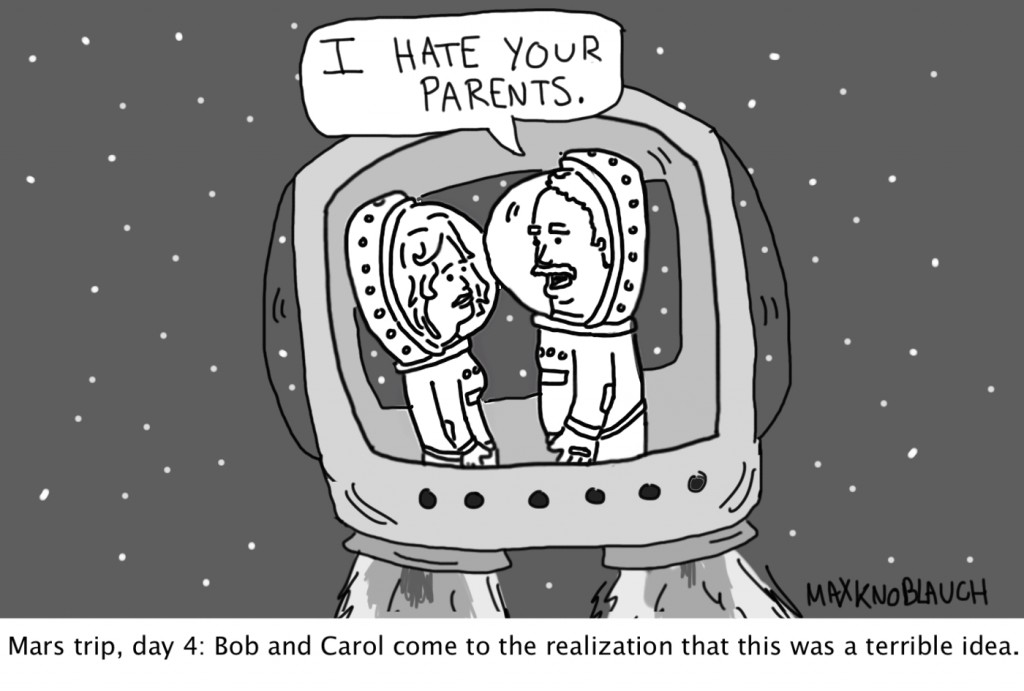Get your crap - we're going to Mars
By Max KnoblauchColumnist
Multimillionaire Dennis Tito, the world’s first space tourist, held a press conference in Washington, D.C., on Feb. 27 to announce his role in a privately funded mission to Mars. The Inspiration Mars Foundation, a nonprofit founded by Tito, will be picking up the bill for the trip: a 501-day fly-by voyage to the red planet and back in 2018.
The foundation is looking for a battle-tested couple to make the trek to the red planet together, as the trip aims at studying the long-term psychological and physical effects of space travel on astronauts. Interested couples are warned that 501 days is a long time, and massive, radiation-filled solar flares are a regular occurrence in space. Also, the only meals you get are like, vacuum-sealed hot dogs and Tang.
Paralleling Tito’s mission is a growing number of specific private sector plans to create a permanent colony on Mars. The nonprofit venture Mars One, based out of the Netherlands, has the goal of creating a four-person human settlement on the red planet in 2023. SpaceX, a private company run by billionaire CEO Elon Musk has announced plans to ferry up to 80,000 paying pioneers by roughly 2025.
While the private sector continues to breathe life into the feeble thought that was once manned Mars exploration, the United States government remains steadfast in their apparent hatred of all astronauts and everything they care about. Between this year’s 38.5 percent cut in Mars exploration funding and the $900 million cut in NASA’s budget with the passing of sequestration, America is quickly taking itself off of the space exploration leaderboards.
Critics are quick to argue that NASA is a money pit; America doesn’t have the cash to spend on frivolous trips to space. However, according to NASA Administrator Charles Bolden, 85 percent of the agency’s meager budget is recycled back into the economy through contracts with American manufacturers, creating valued, high-paying jobs within the nation. So, why should you care about Mars exploration?
Because the Panspermia theory states that life may have originally begun on the smaller and more quickly formed Mars, coming to Earth via bacteria on a meteorite. In other words, there’s a possibility that we’re all actually Martians.
Because scientists believe Mars once had large quantities of surface water and an atmosphere similar to Earth’s. By studying Mars, we can better understand what the future may hold for our own planet.
Because second to Earth, Mars is the most suitable planet in our solar system for life.
Because the challenge of creating a sustainable colony on Mars would create a huge amount of jobs and intellectual capital in America and across the globe.
As Dennis Tito said in his press conference, “I will come out a lot poorer because of this mission. But my grandchildren will be wealthier.”
